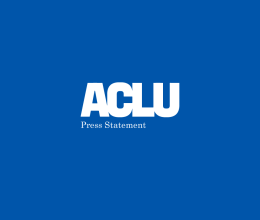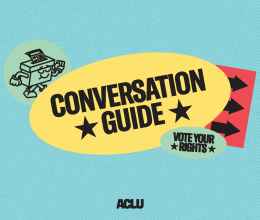
As we near the end of the year, we are bringing you an episode of reflection.
A lot has happened in the world, in our country and in our work at the ACLU.
While we have weathered devastating losses like the overturn of Roe v. Wade this past summer, there are still meaningful victories we can celebrate this year and build on in the coming year. We’ve successfully fought back in courts all across the country on behalf of abortion access, racist and homophobic education gag orders, immigrant rights, voting rights and so much more.
So today we are regrouping with the ACLU’s National Legal Director, David Cole, to talk through where we can find hope this year and also where we can continue to press forward.




